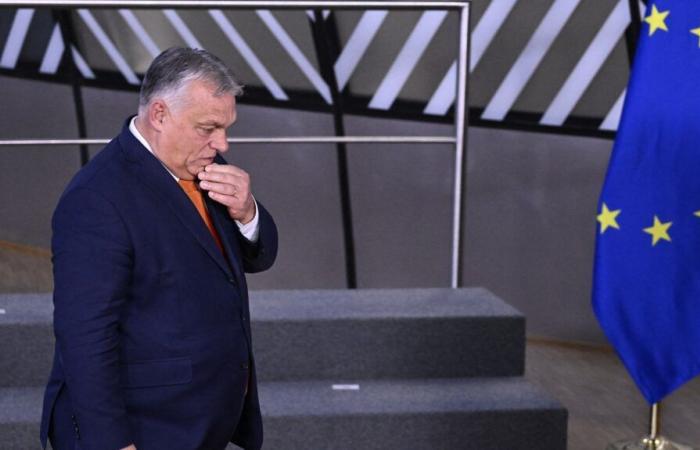The transition is radical to say the least. With the new year, the rotating presidency of the Council of the European Union passes on January 1 from Hungary to Poland. And if the two countries had fairly close positions in recent years, the war in Ukraine marked a rupture, and the arrival of Donald Tusk to power in Warsaw completely changed the situation.
Chief among the 27, Victor Orban did not fail in his reputation during the six months of Hungarian presidency, regularly exasperating his European partners, and sometimes embarrassing them by showing himself adept at parallel diplomacy , very accommodating with Moscow. With his surprise visits, such as to Georgia to greet the contested victory of the pro-Russian party, or to Mar-a-Lago, in Florida, for a warm interview with Donald Trump, the Magyar leader has continued to play his personal card. And to surf on a very particular context, with weakened European figures (Macron and Scholz in the lead) and a populist current, of which he is an essential part, in full rise, from Meloni to Le Pen via Robert Fico in Slovakia.
It is a completely opposite profile which succeeds him to set the pace in Europe. A convinced European and fervent support of kyiv, Donald Tusk intends to give new impetus to the EU, and confirm Warsaw's growing influence on the European scene. An irreconcilable ally of Ukraine since the start of the Russian invasion, Poland has considerably strengthened its military resources, and its Prime Minister is making defense and security issues a priority in the coming months. All this while negotiations could be necessary from the start of this year in Ukraine, driven by another Donald, Trump in this case.
Poland is also preparing to experience a year full of events, between a presidential election in August, and two major commemorations, with the 80th anniversary of the liberation of the camps, at the end of January, and the Nazi capitulation in May, but also the 70th anniversary of the Warsaw Pact, which will have a particular resonance against the backdrop of the war in Ukraine.
In any case, the end of the year confirmed the distance that now separates Poland and Hungary. If the two countries have long constituted a conservative base in Europe, and shared similar positions when the Pis (law and justice party) was in power in Warsaw, the new political situation is changing the balance. As evidenced by this astonishing episode which occurred just before Christmas. Hungary has decided to offer the status of political refugee to the former Polish Deputy Minister of Justice, Marcin Romanowski, pursued by Polish justice and targeted by a European arrest warrant… His case could pollute a little even more so the relations of the two capitals and their leaders. Donald Tusk and Victor Orban, who will undoubtedly be talked about a lot in 2025.






